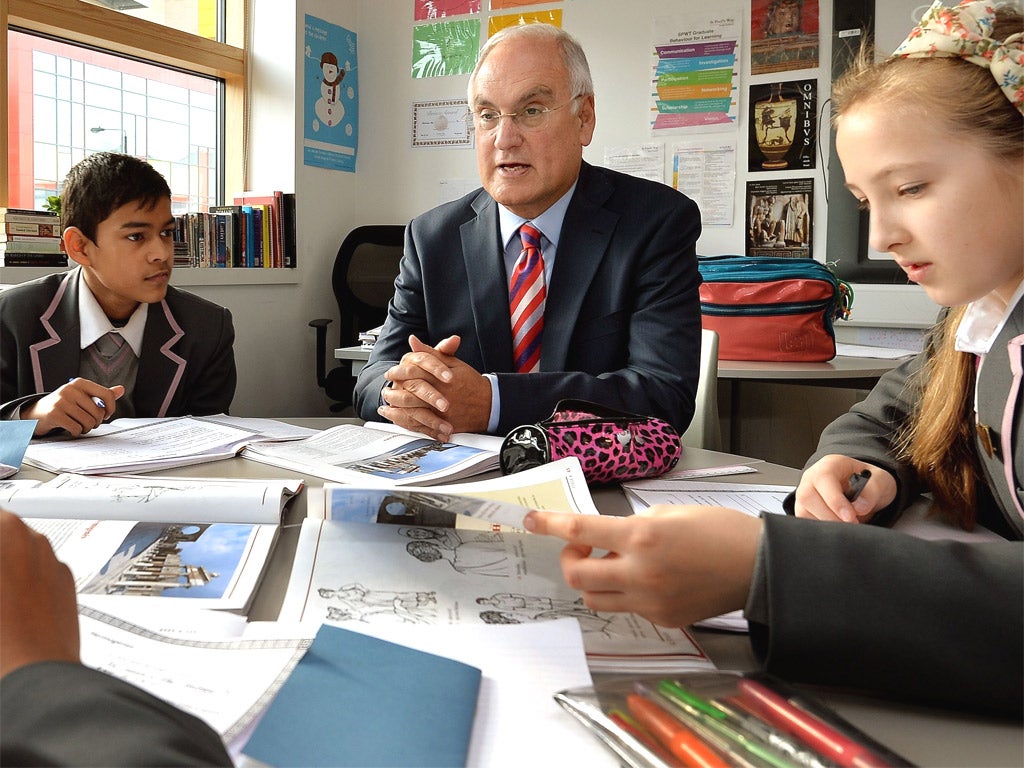Pupils face an 'education lottery' for right opportunities
Sir Michael Wilshaw argues that poverty is no longer the major determinant of whether a child will fail

An education lottery has turned the nation’s children into “lucky or unlucky” pupils depending on where they go to school, the chief schools inspector will warn today.
Sir Michael Wilshaw, presenting education standards watchdog Ofsted's annual report, will say the lottery sentences some children to be taught in sub-standard schools while others get the right opportunities to do well.
However, he will argue that poverty is no longer the major determinant of whether a child will fail.
Some of the “unluckiest” children are poorer pupils living in the affluent areas of the Home Counties - where schools have less experience of tackling disadvantaged.
By the same token, some of the “luckiest” children are being taught in urban areas like Greater Manchester, Newcastle and - particularly - London - where standards have improved.
Sir Michael will also launch a crackdown on minor disruption and inattention in the classroom - which, he says, has been tolerated in too many schools for too long and acts as a barrier to progress.
In a speech coinciding with the launch of the report, he will attack the “poverty of expectation” in England which, he says, remains a fundamental weakness in the education system and prevents it from moving up international league tables. Last week a major report from the OECD (Organisation for Economic Co-operation and Development) said literacy and numeracy standards in the UK had stalled for at least three years.
He will say that “a culture of casual acceptance of low level disruption and poor attitudes to learning” exists in England - which is “a million miles away from the culture we see in some of the high performing Asian countries”. His report estimates around 700,000 pupils attend schools in England where behaviour needs to improve.
He will call on heads and teachers not to allow lessons to be “undermined by background chatter, inattention and horseplay” and insist that Ofsted inspectors focus on behaviour in schools in the coming year.
However, Sir Michael will add that “the battle against mediocrity” appears to gradually being won with nearly eight out of 10 schools being classified as “good” or “outstanding”. He will claim that this is due to Ofsted outlawing the term “satisfactory” to describe a school and replacing it with “requires improvement”. As a result, schools have striven for a higher ranking.
Simon Walker, director general of the Institute of Directors, said of Sir Michael's comments: “If there is a global race, it will be won and lost on the basis of long-term educational attainment.
"Sir Michael's report is right to stress the importance of rooting out the pernicious culture of low expectations where it exists as this will have a damaging effect on the life chances of hundreds of pupils."
Join our commenting forum
Join thought-provoking conversations, follow other Independent readers and see their replies
Comments
Bookmark popover
Removed from bookmarks